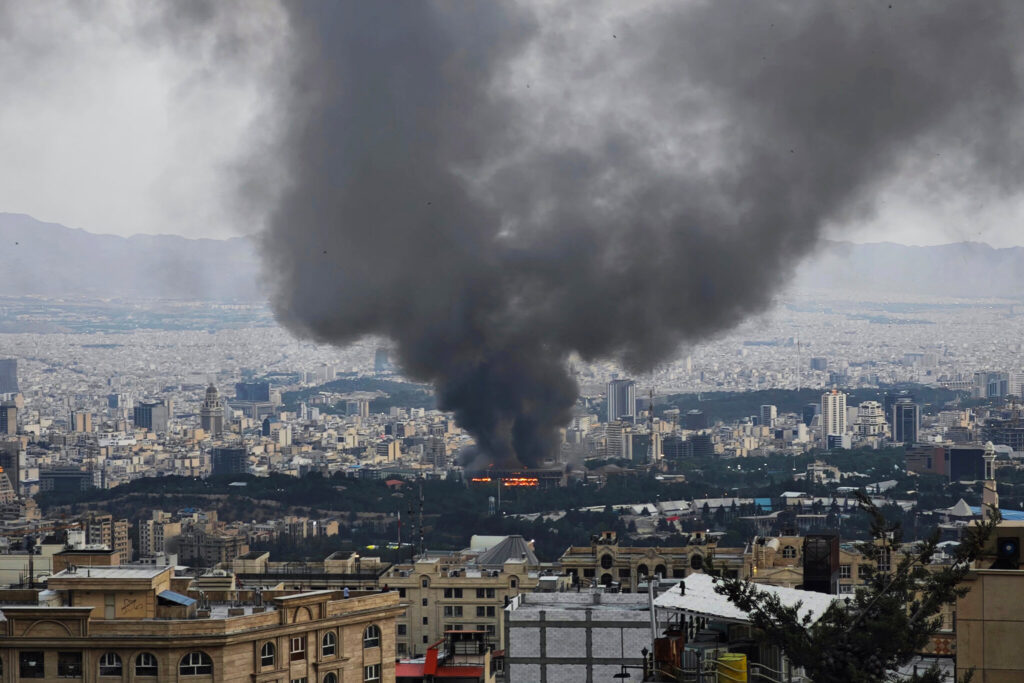BEIJING — As the Israel-Iran conflict enters its fifth consecutive day, China has begun evacuating its citizens from both countries and is ramping up diplomatic pressure for an immediate ceasefire, underscoring Beijing’s concern over rising regional instability and the safety of its nationals abroad.

The Chinese Foreign Ministry confirmed Tuesday that embassies and consulates in Israel and Iran have been actively assisting citizens seeking to leave, though specific details on evacuation operations were not disclosed. The move comes as fighting escalates between the two Middle Eastern rivals, with airstrikes damaging civilian infrastructure and casualties mounting on both sides.
At a press briefing in Beijing, Foreign Ministry spokesperson Guo Jiakun said that China is in close contact with both Tehran and Jerusalem, as well as with other stakeholders, in an effort to de-escalate the conflict.
“China calls on all relevant parties, especially those countries that have a special influence on Israel, to shoulder their due responsibilities,” Guo stated. “Immediate measures must be taken to cool down the tense situation and prevent further escalation and spread of the conflict.” Guo did not name specific nations, but the reference was widely interpreted as aimed at the United States.
Chinese diplomatic missions in both countries have issued multiple advisories in recent days, urging citizens to take heightened safety precautions and to leave the conflict zones if possible. The Chinese Embassy in Israel on Tuesday explicitly advised nationals to either return to China or exit the country via land border crossings, noting that Israeli airspace remains closed and a state of emergency has been extended until June 30.
The embassy cited increased security concerns and said many citizens had inquired about the resumption of Hainan Airlines flights and airport operations. However, those inquiries went unanswered as the security environment continued to deteriorate.
In a public notice on WeChat, the embassy listed multiple overland exit points and recommended the Jordanian route as the most viable option.
“The Israeli-Iranian conflict continues to escalate, with civilian facilities damaged and casualties rising,” the statement warned.
Meanwhile, the Chinese Embassy in Tehran issued a parallel evacuation notice, also on WeChat, warning that although Iranian airspace is still closed, land border crossings could soon be sealed due to the conflict’s unpredictability.
The embassy identified crossings into Turkey, Armenia, and Turkmenistan as possible escape routes, with distances from Tehran ranging from 760 to 910 kilometers (472 to 565 miles).
While facilitating evacuations, Beijing is also intensifying diplomatic outreach. China has consistently urged both Israel and Iran to halt military action, warning that unchecked escalation could plunge the broader Middle East into further chaos.
Behind the scenes, Iran has asked Qatar, Saudi Arabia, and Oman to urge U.S. President Donald Trump to leverage his influence over Israel to agree to a ceasefire, in exchange for greater Iranian flexibility in nuclear negotiations, sources told Reuters.
Trump, who praised Israel’s initial airstrikes and has so far maintained U.S. neutrality in direct engagement, has not commented on China’s mediation efforts. However, the administration has warned Iran against targeting U.S. interests or personnel in the region.
The evacuation orders signal not only Beijing’s concern for its citizens but also its broader apprehension about the destabilizing impact of the Iran-Israel war, which has already disrupted regional trade and energy markets. Civilian casualties in both countries continue to climb, and airspace closures are crippling commercial aviation and mobility.
While China remains publicly neutral in the conflict, its call for international powers to “shoulder their responsibilities” points to a larger diplomatic strategy: portraying itself as a responsible stakeholder amid Western paralysis and instability in the region.
As the violence shows no signs of immediate abatement, the question remains whether China’s dual-track approach—evacuating citizens while pushing for peace— can yield meaningful results in a conflict where trust, diplomacy, and restraint are in short supply.



